Think back to your last meal. Do you remember what was on your mind when you took that first bite?
If you’re like me, you’d want to say the smell and texture of the food, the gratitude you felt, the very essence of being nourished. But if you’re also like me, in reality, it was more like the next thing you needed to check off your to-do list, the dishes piled up, the email you forgot to respond to.
Could the Mindful Eating approach at Le Monastère des Augustines in Quebec, Canada, be the reset I needed?
A Rich History
Located in the heart of bustling Quebec City, the monstery represents nearly 400 years of history. The Augustinian Sisters were a small community of nuns who settled here in 1639 to care for the bodies and souls of those living in “New France.” This was the birthplace of modern healthcare in North America.
The monastery was endowed by the Sisters to the people of Quebec in 2013, an extraordinary gift consisting of a heritage building dating back to the 17th century, as well as some 50,000 artifacts and one kilometre of archives.
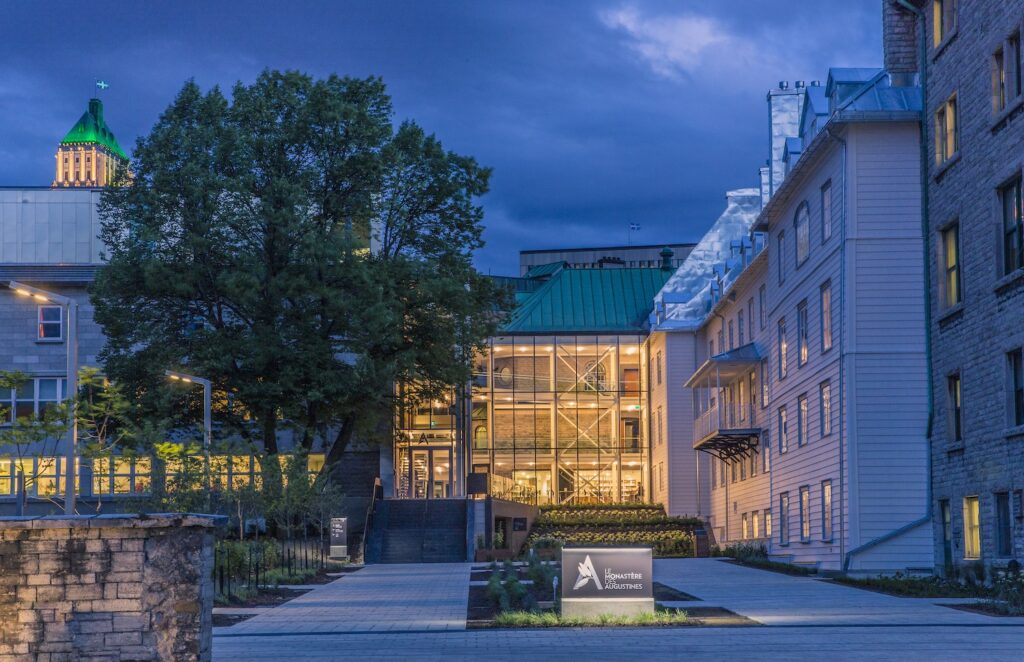
Following major renovations, Le Monastère opened its doors as a non-profit organization in 2015 with a cultural, wellness tourism, and social mission (to provide support and respite to those who care for others).
The feelings one experiences inside its walls are hard to describe. It is at once both old and new, with sloping, creaking staircases and modern glass enclosures. It is soulful, inviting contemplation. It is entirely secular, and yet the spirit of its history speaks to something deep inside, with reverence, respect, and knowing.
You slow down to its pace. Within these solid walls, witness to almost four hundred years of service, you feel the sacred.
A Mindful Eating Approach
Le Monastère des Augustines today carries on the Sisters’ mission and vision based on the four pillars of health: physical, mental, emotional, and spiritual wellness. They are all in relationship and therefore must be in balance to thrive.
Mindful, or conscious, eating speaks to all aspects of wellness and is the cornerstone of Le Monastère’s philosophy of food. Eating in a state of relaxation, slowly, without rushing, and without guilt (nothing is “good” or “bad”). Being kind to ourselves.
After all, how you do one thing is how you do everything.
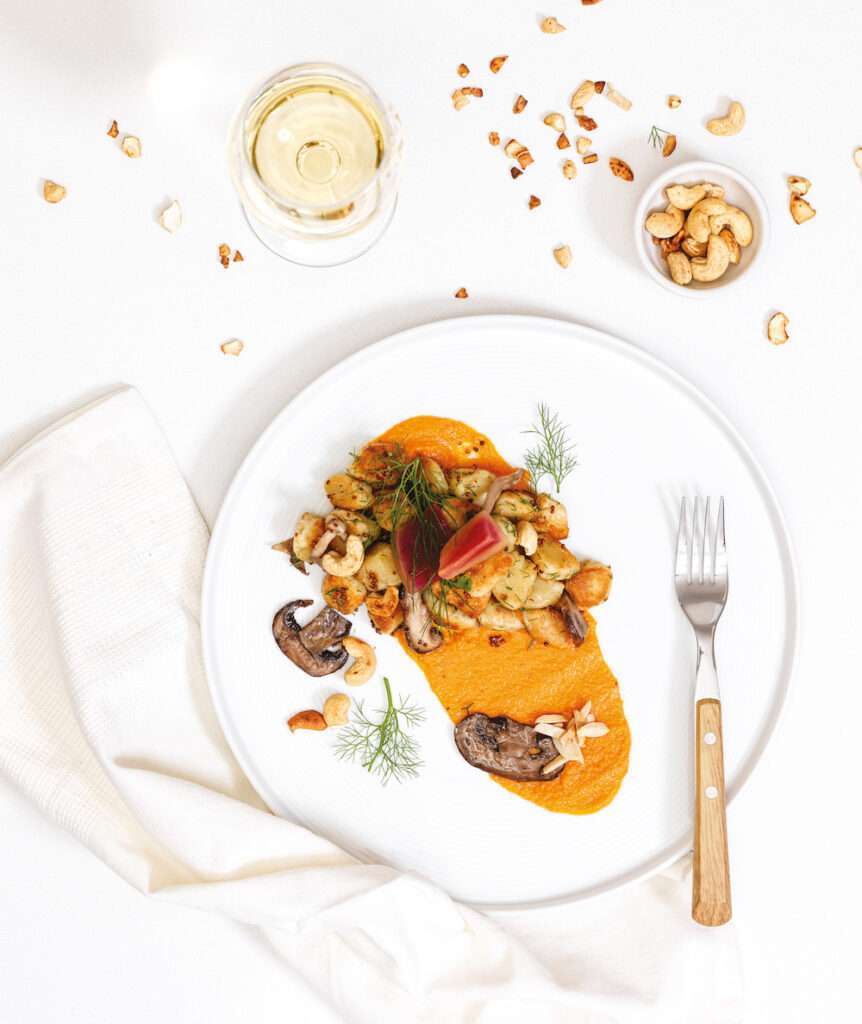
Le Vivoir, a relaxation and mindful eating space for the guests of Le Monastère des Augustines (read about our previous visit), was inaugurated on March 23, 2022. The restaurant’s Mindful Eating guide, available to peruse with your meal, rightly points out, “For years, we’ve been battling a double standard when it comes to food.
On the one hand, social media bombards us with an endless stream of diet trends. On the other hand, our newsfeeds are filled with foodies prompting an overwhelming array of decadent meals. How can we possibly find a balance…in this world of excess and extremes?”
The answer, in a nutshell, is mindfulness. Connecting with your own instincts, paying attention to how you are feeling inside. Observing, being in the moment. Not rushing. When you eat mindfully, you feel your hunger, you truly taste your food, you savour its nourishment, and you notice your satiety.
Wellness is Always on the Menu
The restaurant’s vibe is peaceful, welcoming, and pleasurable. Conversations are quiet, broken up by occasional laughter (breakfast is in silence in keeping with the monastery’s traditions).
A beautiful vertical garden wall of plants purifies the air while a counter garden provides fresh sprouts for the restaurant’s dishes.
Flexibility and diversity are forefront at Le Vivoir (and its sister take-out counter), offering a wide array of mains and side dishes that guests can combine according to personal preferences, dietary restrictions, hunger, or values.
Inspired by the Augustinian Sisters who began cooking here centuries ago who, as healers and apothecaries, used their expertise of food and plants to speed the recovery of those in their care, the focus is on fresh, seasonal products, mostly local and organic.
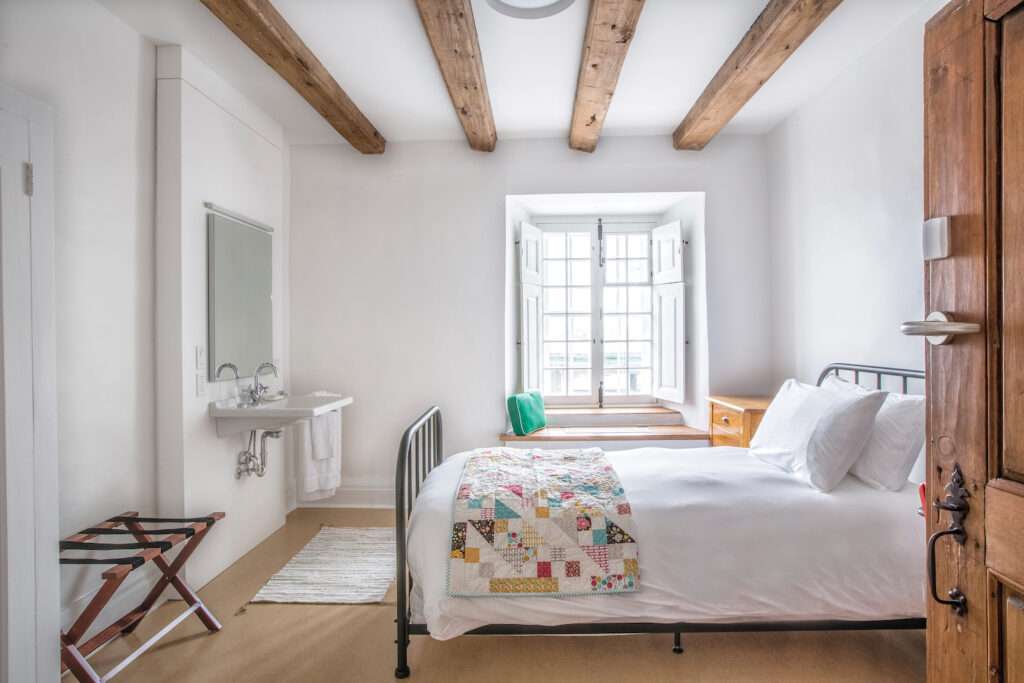
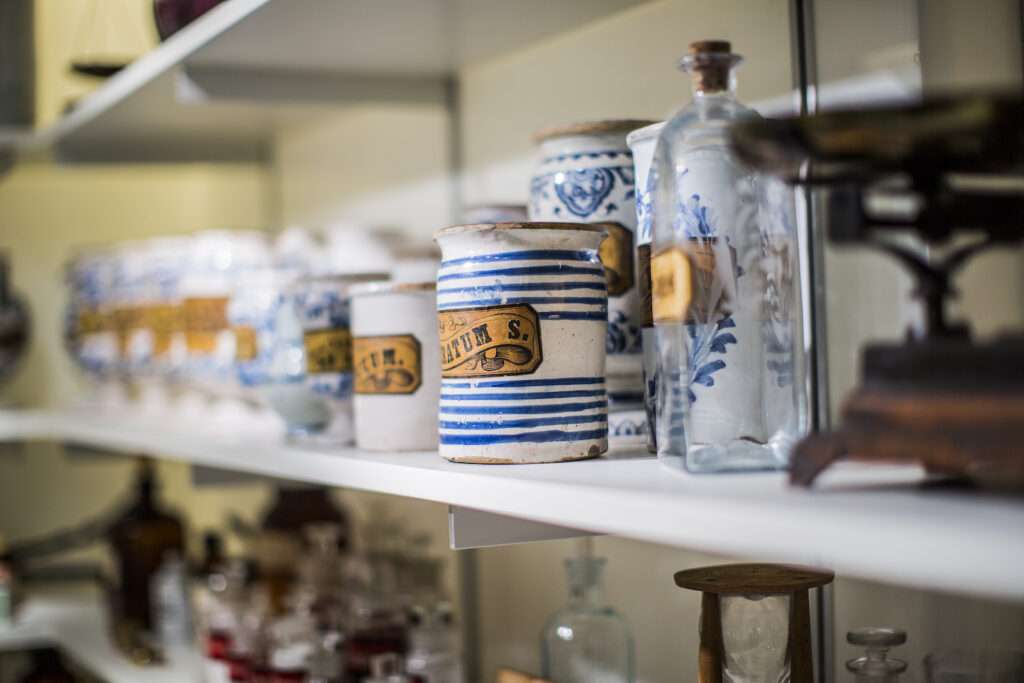
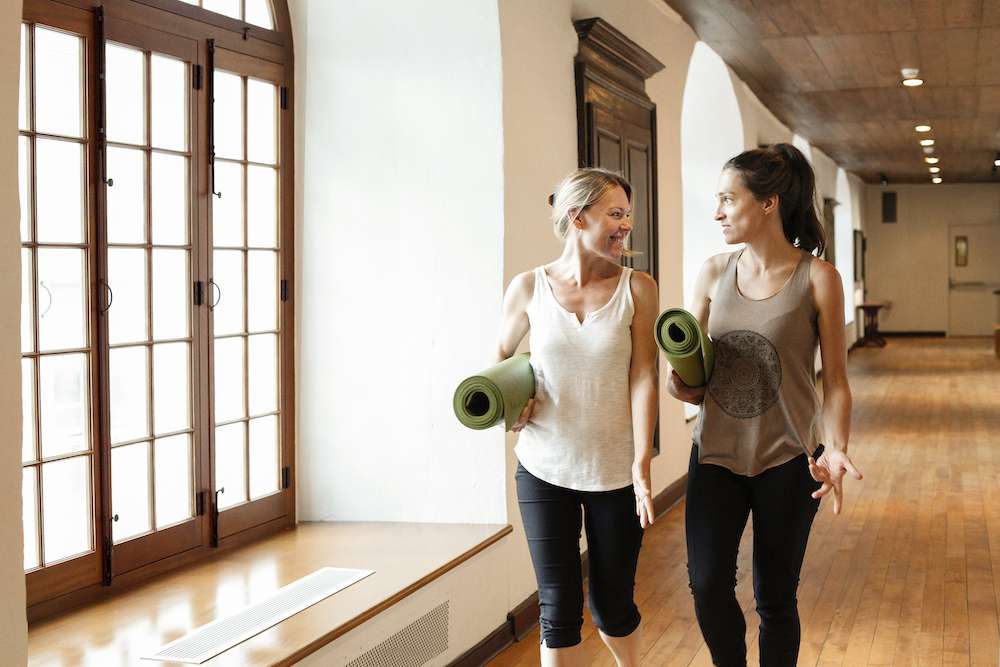
Supplier relationships are carefully chosen and cultivated; in fact, Executive Chef Christophe Penny co-founded a local food co-op program (Le PRÉ) in 2017 to connect local producers with restaurant operators in the region for short supply chains (with no intermediaries) and exceptional fresh products.
I was able to chat with chef Derek McCann whose passion for bold, clean food, and experimentation was contagious. The food is truly beautiful, the presentation being just as important as the preparation, which is done in ways that preserve nutrients.
The kitchen here does a lot of slow and sous-vide cooking to minimize vitamin loss. The salad bar is bountiful with raw foods, sprouts, nuts and seeds along with incredible fresh soups, prepared salads and breads (I fell in love with ghee here and will never go back to regular butter!).
The menu choices are always evolving, focusing on seasonal variations, with vegetarian mains (the butter tofu was superb), locally-caught fish, and meat from free-range animals raised humanely.
You may be surprised to learn the menu is not vegan or vegetarian (they have coffee as well, which is pretty much contraband at many wellness centres). But again, the philosophy is on choice, not restriction, dogma, or judgement.
But rest assured, if you are vegan, or plant-based, or gluten- or dairy-free, there is an incredible selection for all here, including a variety of beverages, alcoholic and non.
Rooted in Centuries of Hospitality
The health benefits of eating mindfully align with the values of the Augustinian Sisters, who devoted their lives to caring for the sick in what we would now call a holistic approach to healthcare.
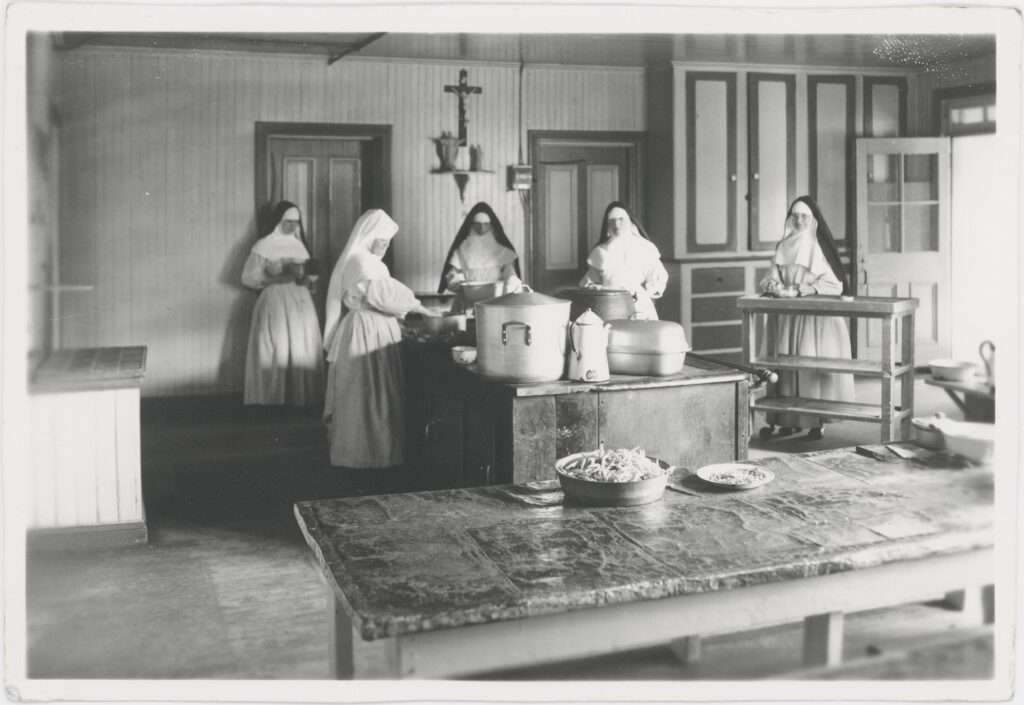
They maintained huge gardens near the monastery to feed both themselves and those under their care, cultivating orchards, a variety of vegetables, walnut trees, herbs, and medicinal plants for the apothecary as well as keeping bees.
From their arrival, these devoted women embraced a healthy lifestyle that was in harmony with nature and the environment, with the responsible use of resources.
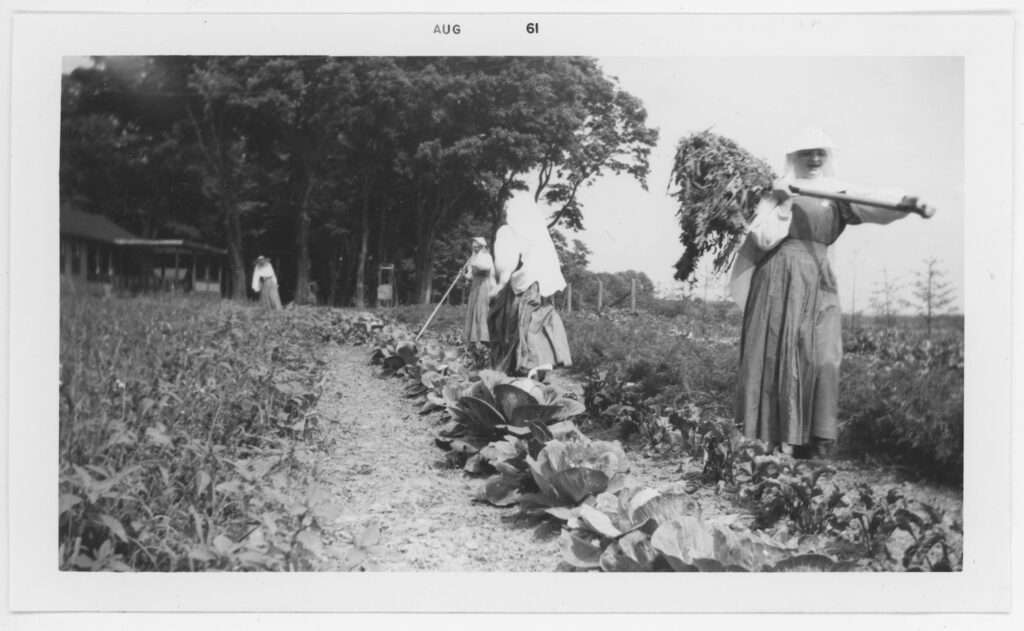
My takeaway? Since returning, I have consciously incorporated mindful eating into my daily life. I have experienced much better digestion, less guilt and more ease when making choices, and a more grateful mindset overall.
You don’t need to visit Le Monastère des Augustines to find mindful eating, but you may just find yourself here.
How can you start to eat more mindfully?
Advice gleaned from my experience at Le Monastère for fostering your own practice:
- Notice your hunger
- Observe the ingredients and be come aware of their origin, smell, and colour
- Look at your plate before eating, pausing to feel gratitude for all who made your meal possible
- Eat slowly, noticing the taste and texture, and whether you enjoy them
- Become aware of your feelings as you eat; connect within
- Paying attention to how your body feels as you digest – are you feeling energized, nourished, bloated, too full?
An Adventure Within
Rest and rejuvenation – words that truly mean something here. In the morning, a contemplative walk is offered in the surrounding streets steeped in history.
Late afternoon, gentle yoga and breathwork allow the chance to refocus before transitioning to evening. Health consultations and body treatments complete the experience here with a spirit of kindness and compassion.
[We Recommend] 1639 Massage
In honour of the first Augustinian Sisters who came to Québec in 1639 is a massage treatment featuring the signature 1639 Whipped Shea Butter. A full-body relaxation session to soothe tension and muscle pain, you just might doze off! Extend the experience at home with the shea butter, with a scent that conjures the tranquillity of Le Monastère.
Visit monastere.ca to plan your experience.

